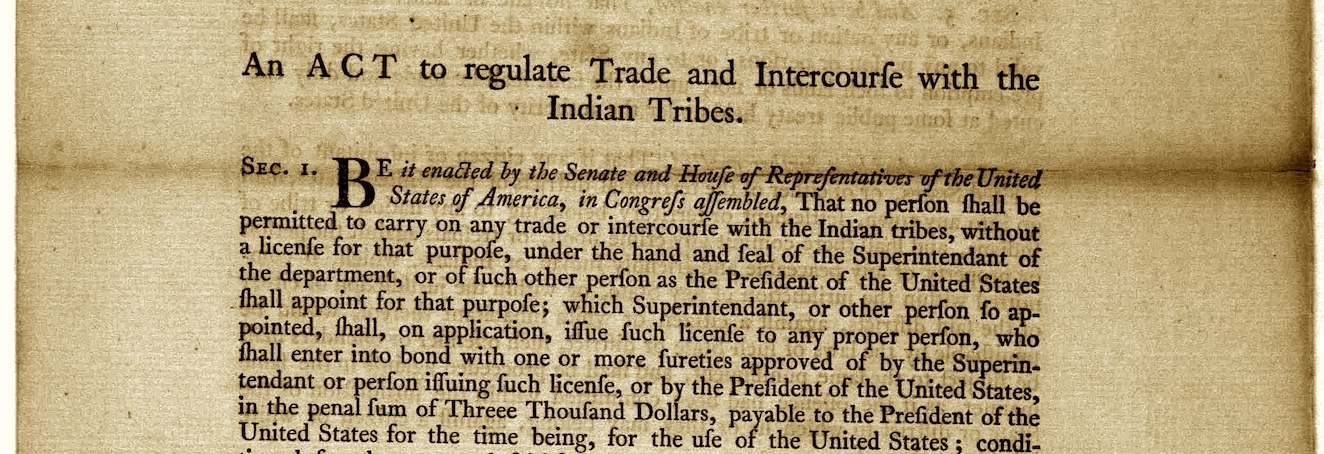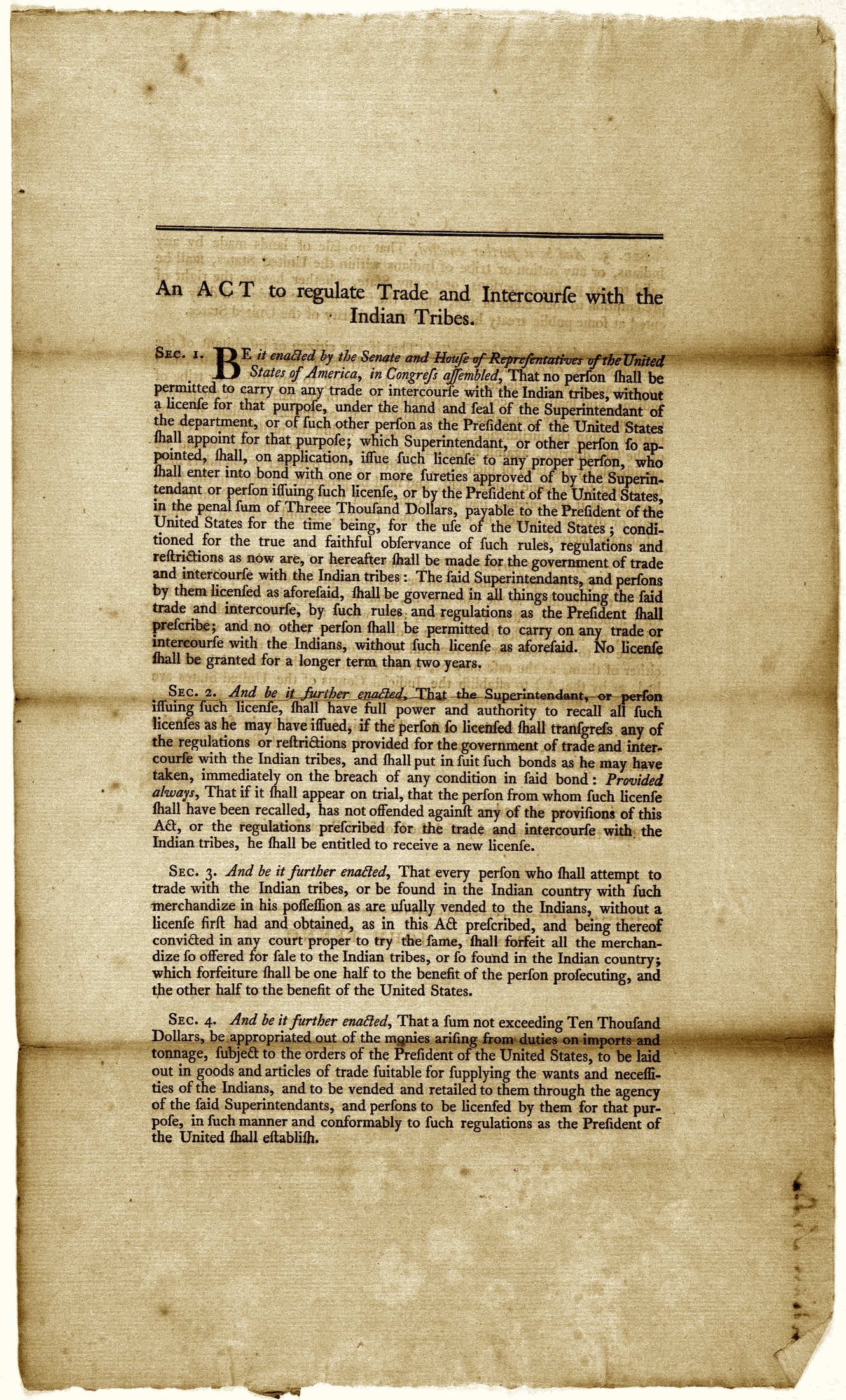


One of the first laws passed by the newly created Congress, this Act confirmed the new federal government's exclusive authority regarding the Indian Tribes pursuant to the Indian Commerce Clause in the US Constitution, and included a prohibition on purchasing Indian lands without federal approval. This Act played a key role in the Maine Indian Land Claims.
SECTION 1. Be it enacted by the Senate and House of Representatives of the United States of America in Congress assembled, That no person shall be permitted to carry on any trade or intercourse with the Indian tribes, without a license for that purpose under the hand and seal of the superintendent of the department, or of such other person as the President of the United States shall appoint for that purpose; which superintendent, or other person so appointed, shall, on application, issue such license to any proper person, who shall enter into bond with one or more sureties, approved of by the superintendent, or person issuing such license, or by the President of the United States, in the penal sum of one thousand dollars, payable to the President of the United States for the time being, for the use of the United States, conditioned for the true and faithful observance of such rules, regulations and restrictions, as now are, or hereafter shall be made for the government of trade and intercourse with the Indian tribes. The said superintendents, and persons by them licensed as aforesaid, shall be governed in all things touching the said trade and intercourse, by such rules and regulations as the President shall prescribe. And no other person shall be permitted to carry on any trade or intercourse with the Indians without such license as aforesaid No license shall be granted for a longer term than two years. Provided nevertheless, That the President may make such order respecting the tribes surrounded in their settlements by the citizens of the United States, as to secure an intercourse without license, if he may deem it proper.
Sec. 2. And be it further enacted, That the superintendent, or person issuing such license, shall have full power and authority to recall all such licenses as he may have issued, if the person so licensed shall transgress any of the regulations or restrictions provided for the government of trade and intercourse with the Indian tribes, and shall put in suit such bonds as he may have taken, immediately on the breach of any condition in said bond: Provided always, That if it shall appear on trial, that the person from whom such license shall have been recalled, has not offended against any of the provisions of this act, or the regulations prescribed for the trade and intercourse with the Indian tribes, he shall be entitled to receive a new license.
SEC. 3. And be it further enacted, That every person who shall attempt to trade with the Indian tribes, or to be found in the Indian country with such merchandise in his possession as are usually vended to the Indians, without a license first had and obtained, as in this act prescribed, and being thereof convicted in any court proper to try the same, shall forfeit all the merchandise so offered for sale to the Indian tribes, or so found in the Indian country, which forfeiture shall be one half to the benefit of the person prosecuting, and the other half to the benefit of the United States.
SEC. 4. And be it enacted and declared, That no sale of lands made by any Indians, or any nation or tribe of Indians the United States, shall be valid to any person or persons, or to any state, whether having the right of pre-emption to such lands or not, unless the same shall be made and duly executed at some public treaty, held under the authority of the United States.
SEC. 5. And be it further enacted, That if any citizen or inhabitant of the United States, or of either of the territorial districts of the United States, shall go into any town, settlement or territory belonging to any nation or tribe of Indians, and shall there commit any crime upon, or trespass against, the person or property of any peaceable and friendly Indian or Indians, which, if committed within the jurisdiction of any state, or within the jurisdiction of either of the said districts, against a citizen or white inhabitant thereof, would be punishable by the laws of such state or district, such offender or offenders shall be subject to the same punishment, and shall be proceeded against in the same manner as if the offence had been committed within the jurisdiction of the state or district to which he or they may belong, against a citizen or white in habitant thereof.
SEC. 6. And be it further enacted, That for any of the crimes or offences aforesaid, the like proceedings shad be had for apprehending, imprisoning or bailing the offender, as the case may be, and for recognizing the witnesses for their appearance to testify in the case, and where the offender shall be committed, or the witnesses shall be in a district other than that in which the offence is to be tried, for the removal of the offender and the witnesses or either of them, as the case may be, to the district in which the trial is to be had, as by the act to establish the judicial courts of the United States, are directed for any crimes or offenses against the United States.
SEC. 7. And be it further enacted, That this act shall be in force for the term of two years, and from thence to the end of the next session of Congress, and no longer.
APPROVED, July 22, 1790.